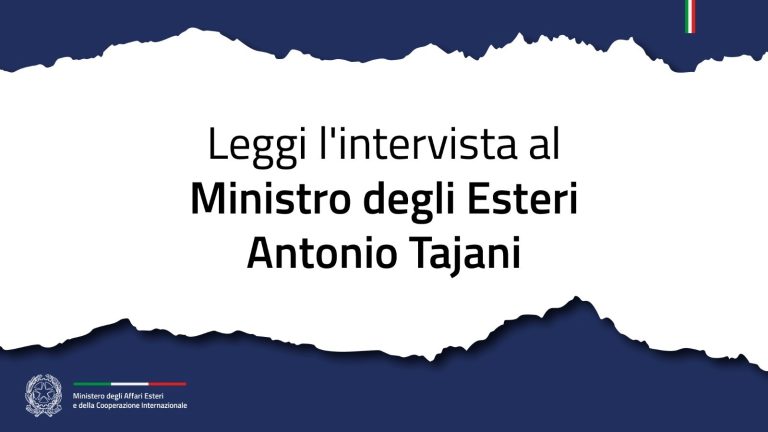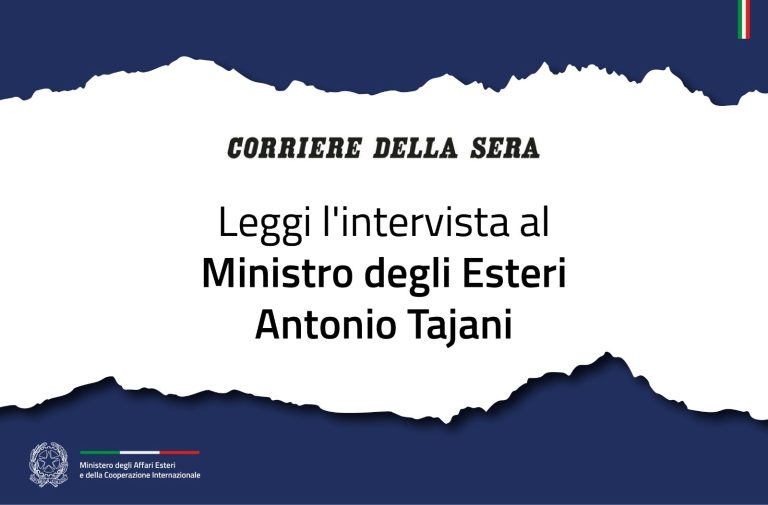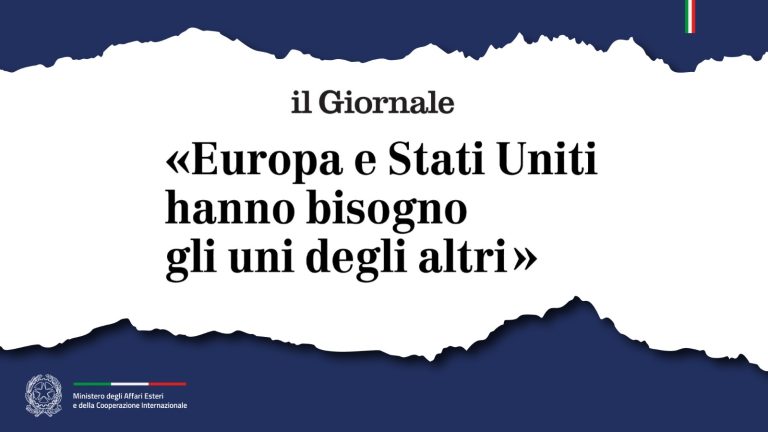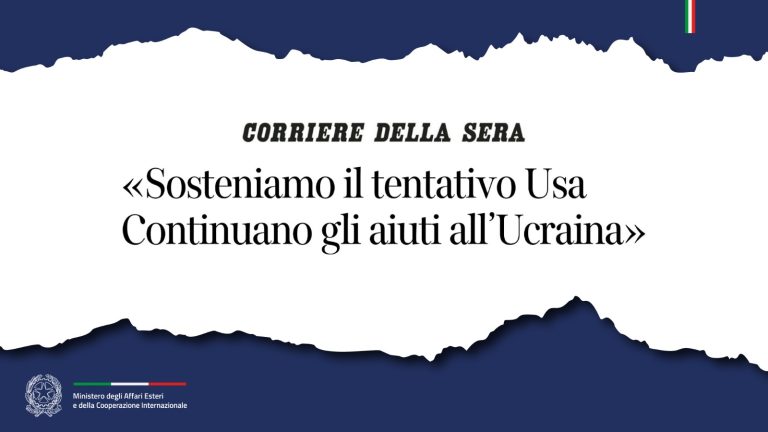The harsh, stinging words from Vladimir Putin to Volodymyr Zelensky do not seem to impress Italy’s Minister of Foreign Affairs and Deputy Prime Minister, Antonio Tajani. Indeed, he says they were almost “predictable”, if you read them in light of “Russia’s need not to speed up the peace process”. This, he argues, is why the Istanbul negotiations were only half-successful – not because of the Ukrainian intelligence operations on Russian soil, as the Kremlin claims. “Russia,” says Tajani, “has every interest in slowing down the dialogue because it has a million soldiers on the ground and an industry now focused on military needs. A sudden change in the conditions would bring the Russian economy to its knees, and that’s something Putin cannot afford”. The West, however, is continuing to push in that direction. First came the long phone call between the Russian President and Donald Trump, followed by one with Pope Leo XIV: “These are all positive signals,” Tajani acknowledges. “They mean that the path towards peace is still open and that, step by step, we continue to move forward”.
In the meantime, Europe is rearming. Tajani has just met with Giorgia Meloni at Palazzo Chigi to prepare for the upcoming NATO summit in The Hague. What does this mean for Italy?
“We’ve reached 2% of military spending as a share of GDP, but at that summit they might ask us to reach 3.5%. In the current situation, we’d have to wait a long time to hit that new target, and I fear we won’t have the option of negotiating a delay this time around. Tariffs, too, don’t help Europe invest more in defence. In this case, the American demands are contradictory, and we’ll make that clear”.
So far, the Prime Minister has been reluctant to back the EU plan to invest in defence by excluding military spending from the Stability Pact. What’s your view?
“I’d be in favour. It’s always useful to have more flexibility”. Have you spoken to Meloni about this? “No, not yet. But my position isn’t a matter of principle. I’d like to discuss it with our allies before the next Budget Law. If the majority doesn’t want to use these funds, I’ll go along with that – but personally, I’d seize the opportunity”.
After all, Fratelli d’Italia, like Forza Italia, has been calling for greater EU flexibility on military investments since the start of the war in Ukraine.
“You remember correctly. And several other countries have already signed up”.
You’ll certainly have Defence Minister Guido Crosetto on your side, but Matteo Salvini, leader of the League, has always opposed further spending on arms.
“Matteo is a sensible person. He knows there are many ways to bolster defence without necessarily investing in weapons. If we have hospitals that can handle a chemical or biological attack, that investment has social value. These resources could also be used for infrastructure and to improve mobility. Think of Sicily, for example, where there’s a NATO base and where a bridge could solve many problems. Let’s not underestimate the opportunity we have”.
In the meantime, how can diplomacy move forward to accelerate peace talks? Could new EU and US sanctions and tariffs on Russian oil help?
“We’re open to putting these kinds of measures on the table. They can make it harder for Moscow to sustain an army that doesn’t fight with the motivation of the Ukrainian one, but rather for economic reasons. These are useful tools to keep the pressure high, to convince Putin to genuinely negotiate for peace”.
Pope Leo XIV has spoken to Putin. Could the Vatican become the venue for negotiations, after the Istanbul efforts faltered?
“The Holy Father’s diplomatic efforts are invaluable. For now, I think we can still use the Turkish platform: in this initial phase, when there’s no real progress between the warring parties, we can’t risk undermining the Pope and the Vatican’s role as mediators. I believe the Holy See could become the place where the negotiations are concluded”.
There’s also been a new phone call between the Kremlin and the White House, but no breakthrough. Did you expect more from Trump, given his campaign promises?
“I expected more from Putin. We’re still fully behind Washington’s efforts, because the American card remains the most important one for achieving peace. And it’s the only one actively moving, while the other big player – China – remains still”.
Europe, meanwhile, is moving, but not always with unity, partly because of some of Meloni’s ambiguous positions. Has this all been resolved by her meeting with Macron at Palazzo Chigi?
“The Prime Minister, like the Italian Foreign Ministry, has always supported the European line. This was clear at the summit she organised with Ursula von der Leyen and the US Vice President, JD Vance, as well as in her consistent support for negotiations on tariffs. The meeting with Emmanuel Macron strengthens Europe because it involves two key EU countries bringing their positions in line”.
Meloni had previously criticised the “Coalition of the Willing” format, which was driven mainly by France, and Macron had accused her of spreading fake news.
“That’s an issue that’s been fully resolved. The ‘Coalition of the Willing’ is no longer around because some thought they could quickly achieve a ceasefire and wanted to discuss the deployment of peacekeeping forces in Ukraine – but that precondition never materialised. We were right”.
The Prime Minister also discussed Libya with the French President, where Russia seems to be increasing its military presence.
“We say it at every NATO and G7 summit: the southern Mediterranean front must not be neglected. There’s no doubt it’s worrying that Putin wants to move one of his military bases there from Syria, given the destabilising effects it could have, including on migration flows. Europe must stand united if it doesn’t want to leave an open field for powers like Russia and China, and finding common ground with France in those countries is certainly important”.





